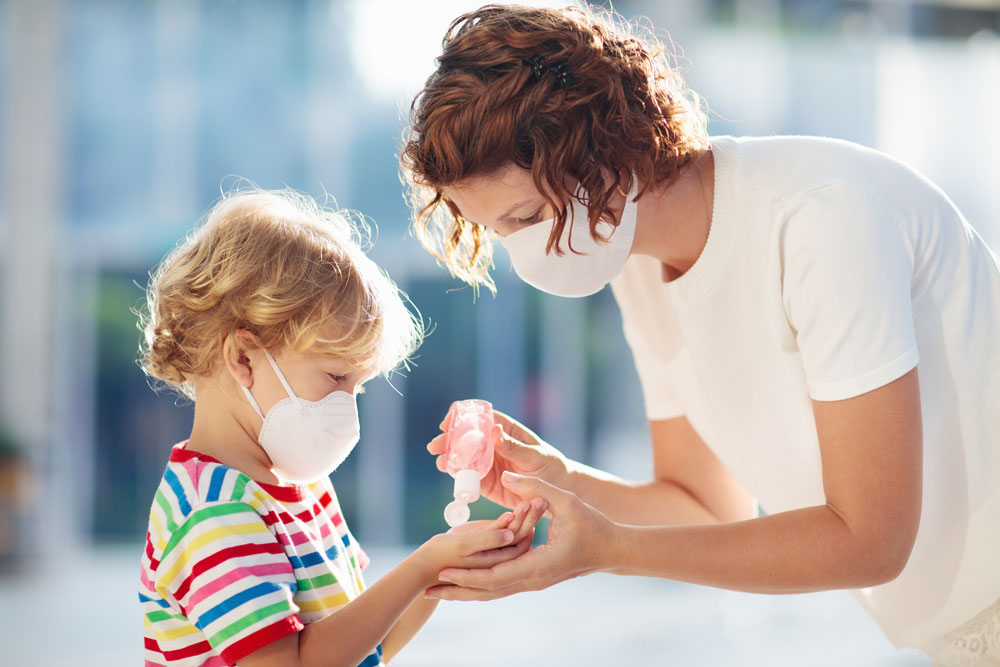The coronavirus pandemic has forced children to deal with many changes over the past 15 months. While adjusting to remote learning and limited social contact was difficult, the transition back to more “normal” ways of life can also be a challenge.
Of course, the pandemic is still a reality, especially with contagious variants, rising case counts and the fact that children under 12 still can’t receive any COVID-19 vaccines. But our day-to-day situation has shifted this summer with camp, travel and back-to-school shopping.
As kids reemerge into pre-pandemic routines, it’s natural for many to feel a sense of anxiety around these changes. Fortunately, there are ways to guide them through the challenges and teach them to cope.
HuffPost asked experts to share how parents can help their children as they deal with reemergence anxiety. Read on for five tips.
Don’t suppress your anxiety, talk about your feelings.
“Parents should support their children by listening to their child’s anxieties if their child is willing to share,” said licensed clinical social worker Nidhi Tewari. “Often, providing a safe space for kids to process and express themselves helps them to feel less anxious. Be sure to take a nonjudgmental and calm stance, ask open-ended questions to deepen your understanding of your child’s anxiety triggers, and normalize your child’s worries so that they do not feel alone.”
It’s important to encourage children to talk about their feelings and ask questions. Parents can help their kids understand and name their emotions. They can also teach them how to connect physical feelings in their bodies with specific emotions, like butterflies in the stomach or sweaty hands.
“Explain to your kids it’s OK to feel bad and to talk about feeling bad,” said psychotherapist Noel McDermott. He also encouraged other forms of reassurance like hugs or snuggling on the couch to watch a movie.
Identify coping mechanisms for anxiety.
“Once the feeling is identified, then the parent and child can work together to come up with a plan for what the child can do when they are having that emotion, such as coping skills,” said Jacqueline P. Wight, director of mental health services at DotCom Therapy. “Helping children feel as though they can cope with an emotion can reduce the power that emotion might have over the child.”
Parents can encourage their children to read a favourite book or write in a feelings journal during these moments. They might draw pictures or do other art projects while listening to calming music. Families can also designate a special soothing space in the home to go during difficult emotional moments.
“Your goal is to help your child manage their anxiety, not to make the anxiety go away,” said Dr. Helen Egger, a child psychiatrist and co-founder of Little Otter. “By learning skills to manage their anxiety, kids function better AND their anxiety decreases.”
Plan mental health-boosting activities.
On a day-to-day level beyond particularly anxious moments, families can also create routines and plan activities that boost mental health.
“Encourage physical activity, especially high-intensity activities where possible,” McDermott said. “This helps regulate the hormones associated with anxiety which are used in fight or flight. Turn off the news and focus time on fun activities.”
Dr. Ilisse Perlmutter, director of child and adolescent psychiatry at Talkiatry, suggested age-appropriate activities that help kids feel more in control during times of transition and uncertainty.
“This might include writing stories, drawing pictures, gradual participation in activities outside the home,” she said. “Limit media exposure and maintain a routine.”
Don’t make unrealistic promises.
It may feel tempting to do or say something grand to support your anxious child. But it’s best to keep things simple and straightforward.
“Explain that the things they are experiencing and doing are often how we express our feelings of anxiety and sadness. Reassure and comfort, but don’t make unrealistic promises,” Perlmutter said.
“Be positive and matter-of-fact but not overly reassuring,” Egger echoed. “We can’t promise kids that their worries won’t happen. We can promise to be there to help them cope.”
Seek professional help.
“If the behaviors of your kids interfere with their daily lives or are persistent, talk to your family doctor about specialist help,” McDermott said. “Treatment for anxiety from psychological therapies are very successful and can be delivered via therapies such as art for younger kids.”
Licensed therapists can help identify possible diagnoses in children and help them develop skills to manage things like anxiety symptoms. It can be beneficial to have additional support, especially from an external, unbiased source.
The original version of this article was originally published in Yahoo.
At LCC we have a dedicated and highly skilled team ready to help children and young people. To find a therapist, get in touch with us.





